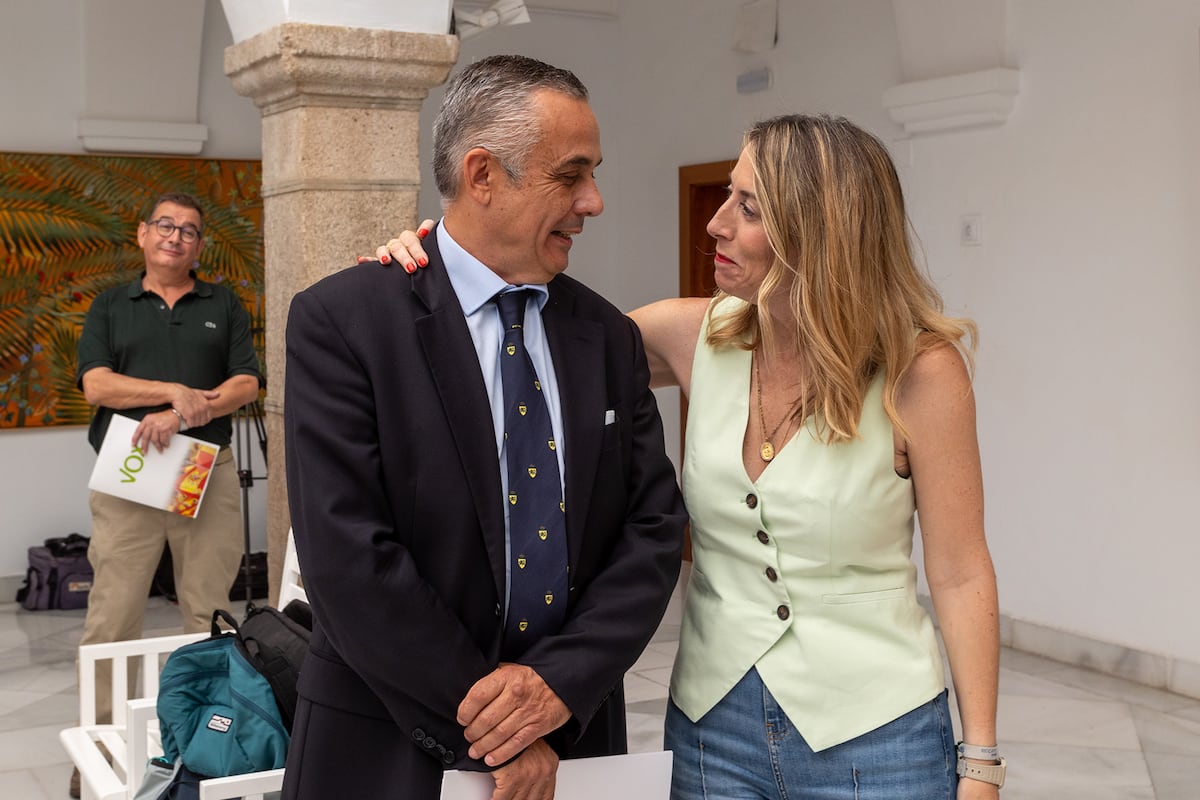The PP reserves for the last moment, even until its leader, Pablo Casado, rises to the rostrum on Thursday, communicating the exact meaning of his vote in the Vox motion of censure that is being debated since this Wednesday in Congress.
Among the 89 parliamentarians of the group, which the popular leadership has decided for now not to gather to consult their opinion, there is a division.
Some deputies opted for abstention, so as not to further disappoint their electorate now in the ranks of Vox.
Others prefer to mark distances with the extreme right and vote no.
The PP will not accept unchecking in conscience.
The group has been improvised in some premises of the Congress.
It is the eve of the debate on the motion of censure registered by Vox and a group of veteran PP deputies talks about "what would be less bad" for that formation when voting on Thursday.
Those are the options.
They do not have any direct information on the leadership of their group or their party.
No one has officially summoned them to ask for their opinion, nor to anticipate the button they will have to press: abstention or not.
Married yes, he has asked in his surroundings and even at meals with the most trusted team members.
But the grassroots PP deputies also have their opinion.
Many times contradictory.
“If I voted with my heart or with my guts, I would have to vote no, because we cannot associate in any way with an ultra party;
But if you think about it with your head, the best thing would be to abstain, because we cannot definitively renounce those almost four million votes that Vox has, many of them coming from the PP, who would not understand it, "exposes a popular parliamentarian with several decades of militancy .
Another deputy with accumulated experience also in the party organs adds: "I would vote no, because those of Vox attack us, because I am a liberal of the center and I cannot understand their most ultras positions."
A colleague from the third ranks: "Abstention leaves us more room to argue, to explain ourselves, to later give a reason and the opposite."
The anticipated debate in a hall of Congress continues.
A popular deputy makes his calculations to justify his tendency towards abstention: “Vox is not a party comparable to our tradition, but half of its electorate, at least, comes from the PP and if one day we get them to return to our ranks they can be 30 more deputies ”.
Another parliamentarian states: "The body asks me to vote no, especially when I see the provocations and things that Macarena Olona tells us," referring to the general secretary of Vox in Congress.
Olona, to spice up the debate on the motion, has come to pressure the PP by assuring that "everything that is not a yes to the motion of censure, is a yes to this socialcommunist government."
The Vox spokesman, Iván Espinosa de los Monteros, added more insult to injury this Tuesday and dismissed the PP as "that contemplative party that previously led the opposition."
The journalist insists: I have understood your positions but if they asked you what would you vote for?
The most seasoned deputy replies: "Ah, but you have understood our arguments because I did not."
The leadership of the PP, meanwhile, continues with its strategy of hiding, already so complex to scrutinize.
Not only do they not want to anticipate whether they will vote no or abstain, but they have not formally anticipated who will be their spokesperson in the session.
In a few hours, the spokesperson in Congress, Cuca Gamarra, indicated this Tuesday first thing in TVE that before these debates "it has always been the president of the party" who has "carried out" the defense of the position of the popular and he made a prediction that looked like an advertisement: "I don't think we're going to change."
In the middle of the morning, already in Congress, he specified: "In politics nothing is ever final and you always have to be prepared for everything."
The messages of the PP, a few hours after starting the motion, were aimed at imposing authority and avoiding any unchecking.
On Monday Pablo Casado was asked if he contemplated any split in the vote, especially because of the messages that the previous parliamentary spokesperson, Cayetana Álvarez de Toledo, who supported the motion, has publicly sent, and the leader predicted that he did not see it possible.
He insisted that the PP is a "serious" party, as the new spokesperson, Cuca Gamarra, reiterated this Tuesday, and confirmed that in this case there is no vote in conscience.
The PP approved a regulation in a party congress that only allows voting in conscience for issues that "exclusively affect ethical or moral issues that call into question their deepest convictions."
Gamarra specified on Tuesday that this is not the case, that the PP has a tradition of very disciplined internal functioning that does not facilitate this type of desertion.


/cloudfront-eu-central-1.images.arcpublishing.com/prisa/JFGH6JBDQDQ6BYIQCCKNZHA2BA.jpg)
/cloudfront-eu-central-1.images.arcpublishing.com/prisa/MGKJOHC63JHPJC3KMZ2NN2QO6M.jpg)
/cloudfront-eu-central-1.images.arcpublishing.com/prisa/4JS5XE5N7BE6NOR4VBBTTDLQU4.JPG)




